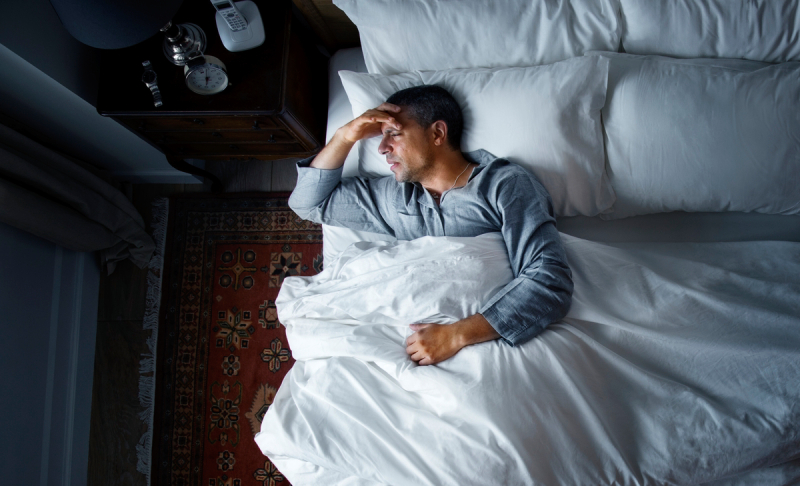Your body is constantly juggling its hormones, with scores of different hormones working simultaneously throughout the body. It’s the endocrine system that’s in charge of regulating all of these hormones and keeping them in balance. But sometimes our body’s natural ability to balance is disrupted when stress comes into play, and the system become overwhelmed, leading to hormonal imbalances. In this article we will discuss stress and hormones, the correlation between the two, and give tips and guidance on how best to manage imbalances.
What are Hormones?
Hormones are chemicals that influence your body’s functions and behaviour. They are produced by the endocrine system. This is a network of glands that work in conjunction with each other to produce and regulate hormones. They play an integral role in virtually every biological process in our bodies. They manage protein production in our bodies, including the cells that make up our muscles, organs and bones. Hormones also control neurotransmitters like serotonin and dopamine, which can help with mood disorders like depression and anxiety.
The hormones travel through the bloodstream to specific locations in your body called receptors. When a hormone attaches to a receptor [1], it triggers a cascade of chemical reactions that results in a particular action or reaction by your body. This can be anything from bone growth to the production of sex hormones.
How Stress and Hormones are Connected
Our bodies are constantly dealing with stressful conditions especially as life can be tough sometimes. Let’s say you start your morning with an alarm blaring in your ears, followed by a quick, frantic rush to get ready for work. Once you finally make it to the office, you realize that a pile of work is waiting for you. Before lunchtime rolls around, everyone looks like they might either scream or cry. You feel like doing both. This is just one example.

When you feel stressed like this (or in other circumstances in life), then, over time, stress affects your endocrine system by influencing the speed of the feedback loop. This creates a “tug-of-war” between your body and its hormones and can cause you to become exhausted and depressed. Stress can also cause a decrease in the number of receptors your cells have, making it difficult for hormones to be utilized appropriately. If this happens, the level of stress and hormones in your body will stay high.
A stressed endocrine system is also responsible for immune function suppression, which can make you more vulnerable to getting sick. Stress causes your brain to maintain a state of alertness and divert the energy away from other functions such as digestion and immunity. Stress can also cause your body to shut down in the face of chronic stress and hormones imbalances. Only when the body receives appropriate levels of sleep, adequate nutrition and therapeutic activities can it recover and return to normal functioning.
When you consider how complex the endocrine system is, how many different hormones there are, and how each can be impacted by stress, it becomes clear to see how powerful the link is between stress and hormones.
Symptoms of a Stressed Hormonal System
A stressed endocrine system can leave you with symptoms such as weight gain, fatigue, muscle weakness and a decreased sex drive. Because stress can disrupt your sleep patterns, it can also interfere with your circadian rhythms. This is your natural body clock that helps you regulate sleep. A stressed endocrine system can also cause symptoms like digestive disorders, headaches and migraines, and eczema. Look for signs such as hot flashes, hair loss, irregular menstrual cycles, and cysts.

Behavioural disturbances such as anger, anxiety and irritability may also result from a stressed endocrine system. You may also experience mood swings or changes in your personality for no apparent reason. Other symptoms may include inappropriate fat distribution, bad health, and bone disorders. Many women may think that late periods are stressful, but they are a sign that the endocrine system has been struggling. The key is to recognize your symptoms and act accordingly.
The Impact of Long-Term Stress on Hormonal Function
Chronic stress and hormones imbalances can have a devastating impact on the endocrine system and negatively affect your overall health. It can also cause numerous other conditions to develop, including heart disease and diabetes. When the body is constantly dealing with stressful situations, it releases large amounts of cortisol. This causes the body to secrete high glucose levels when we are not eating, which can lead to high blood sugar levels. These are both contributing factors in diabetes development.
High cortisol levels can also cause the body to produce extra abdominal fat. This is usually fat located under the skin, around the stomach and in the middle of your body. The increase in abdominal fat can cause you to store more calories as fat and develop high cholesterol levels.
High cortisol levels also decrease sperm count and damage testicular functions. The endocrine system is also responsible for the production of sex hormones. When stressed, this can result in low levels of testosterone and the presence of oestrogen. Low testosterone production can lead to impotence, while low oestrogen levels can cause decreased libido and cause osteoporosis.
What Not To Do When Hormones are out of Whack
Unfortunately, many people try to self-medicate for hormonal imbalances. This is the most common mistake that can be made when it comes to handling stress and hormones. You have only so many choices. If you are sad and depressed, you can eat a candy bar, take some sugar, or drink alcohol for relief. It will work in the short term, but these choices will lead to other problems.
Don’t try too many things at once. Sometimes, you may have lots of choices to feel better, but you can become overwhelmed and stressed by trying to change too many things at once. These feelings will only make you stressed and hormones more out of whack, and your health problems will worsen. Instead, try not to stress over what to do next. Focus on how you feel right now. Consider things like how your body feels, your mood, how you are breathing and what emotions you’re feeling. Some of these choices feel right at the time, but it’s better to try one thing consistently and see what happens before you think about something else.
Can we help you?
Leave us your information and one of our coaches will contact you in 24H

Avoid going places that cause anxiety and depression. If you have a friend you know always makes you feel bad, it’s better to stay away from them. The same goes for places that are often crowded and noisy or trigger memories of stressful past events. These won’t cause immediate problems, but if they’re not dealt with in time, they could develop new symptoms later.
Getting Hormones Back to Being Balanced
Find out what specific stress and hormone imbalances you are dealing with. This will likely involve a blood test and discussing your symptoms with a doctor. Alternatively, try contacting the best hormone replacement clinic in the area to learn more about how you can get your hormones back to being balanced. You will likely be advised on ways of dealing with stressful situations that help reduce stress and hormones imbalances. You may also be prescribed antidepressants, antipsychotics and antianxiety drugs. These medications replace the hormones your body is not producing and provide a natural level of support.
Physical activity helps you burn calories and also helps to regulate stress and hormones levels. Exercises such as swimming and yoga are good for the body and mind. Other activities such as tai chi, walking and gardening can also help to improve your health.
Get Help With Stress and Hormones Issues
Stress and hormones stability doesn’t have to affect your mental and physical health. Instead of letting it take control of your life, you can learn to use stress positively by learning how to better deal with it and find a way to manage it before it has a chance to disrupt your life.
Sometimes, when we feel like we can’t deal with the stress anymore, it’s hard to find the motivation to get help. But don’t let yourself get that far along the road of continual stress as when stress is experienced over a long period, it can lead to Burnout, and as those who have experienced burnout themselves will tell you, it can be a devastating condition.
Therapy is a great way to deal with stress and hormones imbalance on an everyday basis. A stress coach or therapist can help you learn how to deal with stressful situations and even know how to prevent them from escalating. You can also be connected with resources such as support groups, community centres and workshops to help you cope with the stress and hormones. If you are struggling with depression, anxiety or other mental health problems, you may require a more in-depth approach. In these cases, your therapist can give you the support you need to overcome your issues and live a happier, healthier life.
FAQ
References
- Wikipedia.org – Hormone receptor – 23/01/2023
Link to page on wikipedia.org






